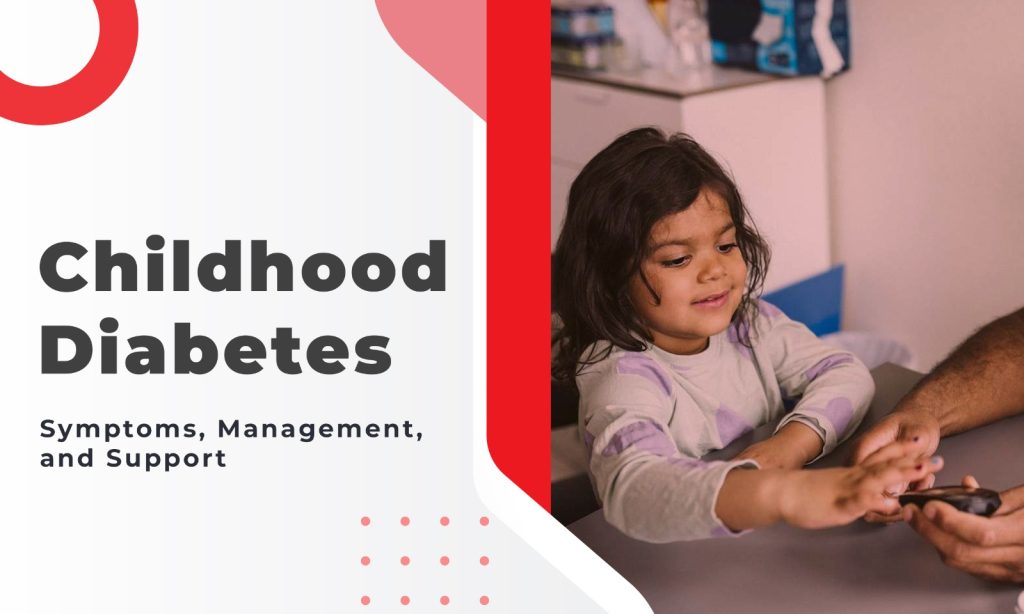Childhood diabetes, also known as juvenile diabetes or type 1 diabetes, is a chronic condition that affects millions of children worldwide. Kalpit Hospital, the multispecialty hospital in Khalilabad, understands the importance of raising awareness about childhood diabetes, its symptoms, effective management, and the support needed for the child and their family. This blog aims to provide a comprehensive understanding of childhood diabetes, including its symptoms, management strategies, and the vital support systems that can significantly improve the lives of young patients and their families.
Understanding Childhood Diabetes
In childhood diabetes, a child\’s immune system mistakenly attacks and destroys the beta cells in the pancreas that produce insulin. Insulin helps regulate glucose in the blood. When there is insufficient insulin, glucose levels in the bloodstream rise, leading to high blood sugar levels. If not managed properly, this can cause various health complications.
Symptoms of Childhood Diabetes
Recognizing the symptoms of childhood diabetes is critical for its early detection and management. Among the most common symptoms are:
Frequent Urination: Children may need to urinate more frequently than usual, particularly at night.
Excessive Thirst: Excessive thirst and a constant need for water are common symptoms of high blood sugar levels.
Extreme Hunger: Children with diabetes may experience extreme hunger despite eating regularly.
Unexplained Weight Loss: Children may lose weight despite eating well.
Tiredness: Fatigue and irritability result from the body\’s inability to use glucose for energy.
Blurred Vision: High blood sugar levels can impair vision and cause it to blur.
Delayed Healing: Diabetes can impair the body\’s ability to heal wounds, causing cuts and bruises to heal slowly.
Management Strategies
Insulin Therapy: Insulin therapy is required for children with type 1 diabetes to control their blood sugar levels. This can be delivered via injections or insulin pumps.
Blood Sugar Monitoring: Regular blood sugar monitoring aids in the adjustment of insulin doses and the maintenance of stable glucose levels.
Consuming Healthy Diet: A healthy diet rich in whole grains, fruits, vegetables, and lean proteins is essential. It is critical to avoid sugary foods and drinks.
Physical Activity: Encourage children to participate in regular physical activities to help control blood sugar levels and promote overall health.
Education and Support: It is critical to educate the child and their family about diabetes, its management, and potential complications. Diabetes support groups can offer both emotional and practical assistance.
Support Systems
Family Support: It is critical to have a strong support system within the family. Parents and siblings play an important role in assisting the child in managing their condition.
School Support: Teachers and staff should be trained to handle diabetes-related emergencies, and schools should be informed about the child\’s condition.
Psychological Support: Living with a chronic illness can be emotionally taxing. Counsellors or therapists can provide children with psychological support to help them cope with the stress and anxiety that come with diabetes.
Community and Peer Support: Interacting with other children with diabetes can help them feel more at ease and less isolated. Community events and support groups facilitate these interactions.
Conclusion
Childhood diabetes is a medical condition that requires careful management and support. Kalpit Hospital, the multispecialty hospital in Khalilabad, is committed to increasing awareness about childhood diabetes, ensuring prompt diagnosis, and providing comprehensive care and support to young patients and their families. By knowing the symptoms, implementing effective management strategies, and creating a supportive environment, we can empower children with diabetes to lead healthy and fulfilling lives.



